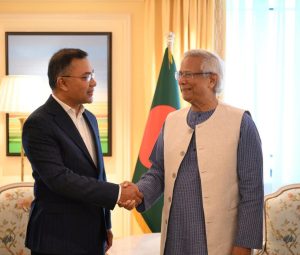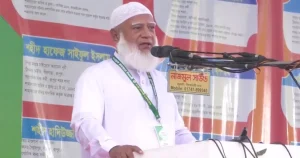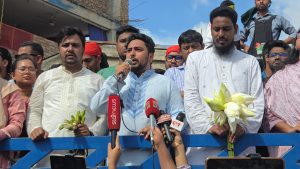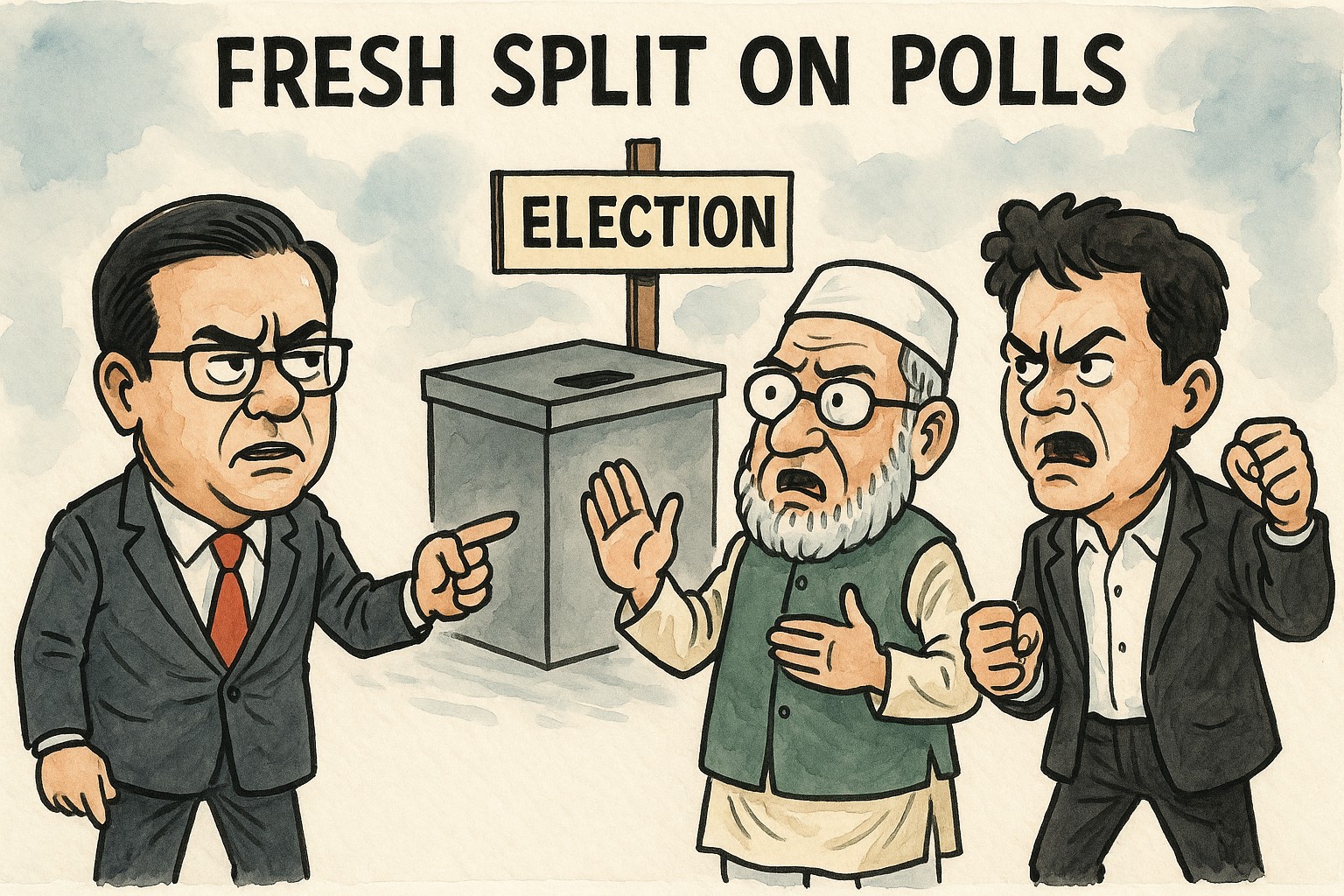Fresh cracks have emerged among the political forces that once stood united against Sheikh Hasina’s regime but now operate as stakeholders under the interim, non-partisan administration of Chief Adviser Muhammad Yunus.
The latest statements from the BNP, Jamaat-e-Islami, and the National Citizen Party (NCP) have revealed serious divisions over the timeline for the upcoming national election.
Following several high-level meetings with Yunus, the BNP has signalled support for holding the election in mid-February next year, ahead of Ramadan, describing it as a realistic target to conclude ongoing reforms.
BNP standing committee member Amir Khosru Mahmud Chowdhury said, “There is a broad understanding that an election before Ramadan is achievable if key preparations are finished.”

By contrast, Jamaat-e-Islami has flatly rejected what it sees as a rushed timeline. Addressing a rally in Rangpur, Jamaat Ameer Dr Shafiqur Rahman declared, “This is not the time to hold elections. A neutral election is impossible under the present circumstances. We must first guarantee an environment where everyone can participate freely.”
Jamaat leaders remain deeply sceptical about the security environment and institutional fairness, warning that any hurried vote could be viewed as illegitimate. “A rigged or stage-managed election will not be accepted,” Dr Shafiqur insisted.
The National Citizen Party (NCP) has staked out an even harder line, demanding that no election be held until those responsible for violence during the mass uprisings under Hasina’s rule are brought to justice, explicitly naming Sheikh Hasina.
NCP convener Nahid Islam stated, “No election before the trial of Hasina. The martyrs of the people’s uprising must receive justice before we talk about any vote.”
The NCP is also pushing for broader reforms, arguing that without structural change, any election would simply reinstall the same power networks.
These disagreements became sharply visible during the National Consensus Commission’s meetings too.

The lack of consensus among these once-allied forces presents a serious challenge for Chief Adviser Yunus, who must coordinate them under the caretaker framework.
If Jamaat and the NCP refuse to participate, a February election could become uncertain. The BNP, however, appears more willing to proceed, viewing Yunus’s roadmap as the best chance to stabilise the country before Ramadan.
This political fragmentation underscores how fragile the transition remains.
Although there is no formal government-opposition divide under the present arrangement, the parties that once jointly opposed Hasina are struggling to agree on a path toward a new democratic framework.

As one senior Jamaat leader put it, “Fair elections are impossible without deeper reforms, no matter who supervises them.” Meanwhile, the NCP’s demand for Sheikh Hasina to face trial before any vote adds another potentially explosive challenge to the mix.
In the coming weeks, the Yunus-led administration will have to carefully balance these conflicting positions to protect the election roadmap. Failure to do so could deepen public frustration, derail transitional consensus, and threaten the country’s fragile calm.
Some observers believe the government might pursue at least one case of crimes against humanity through the International Crimes Tribunal to partially meet NCP and Jamaat’s demands for Sheikh Hasina’s trial.


